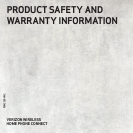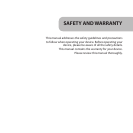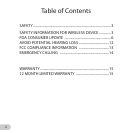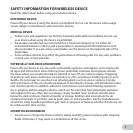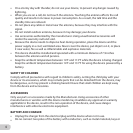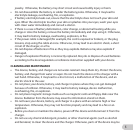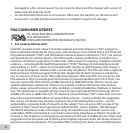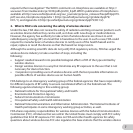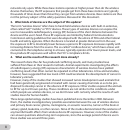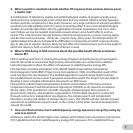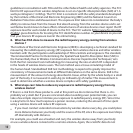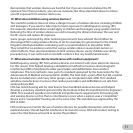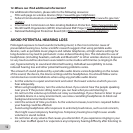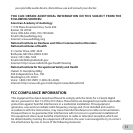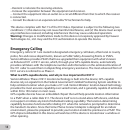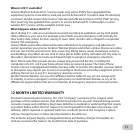
6
damaged or a re can be caused. You can clean the device and the charger with a piece of
damp and soft antistatic cloth.
•
Do not dismantle the device or accessories. Otherwise, the warranty on the device and
accessories is invalid and the manufacturer is not liable to pay for the damage.
FDA CONSUMER UPDATE
U.S. FOOD AND DRUG ADMINISTRATION
CELL DEVICE FACTS
CONSUMER INFORMATION ON WIRELESS DEVICES
1. Are wireless devices safe?
Scientic research on the subject of wireless phones and radio frequency (“RF”) energy has
been conducted worldwide for many years, and continues. In the United States, the Food and
Drug Administration (“FDA”) and the Federal Communications Commission (“FCC”) set policies
and procedures for wireless phones. The FDA issued a website publication on health issues
related to cell phone usage where it states that, while research is ongoing, “available scientic
evidence—including World Health Organization [“WHO”] ndings [in the Interphone study]
released May 17, 2010—shows no increased health risk due to radiofrequency (RF) energy, a
form of electromagnetic radiation that is emitted by cell phones.” The FDA also cites a separate
National Cancer Institute program nding that, despite the dramatic increase in cell phone
use, occurrences of brain cancer did notincrease between 1987 and 2005. You can access the
FDA website at http://www.fda.gov/ForConsumers/ConsumerUpdates/ucm212273.htm. You
can also contact the FDA toll-free at (888) 463-6332 or (888) INFO-FDA. The FCC has its own
website publication stating that “[t]here is no scientic evidence that proves that wireless
phone usage can lead to cancer or other problems, including headaches, dizziness or memory
loss.” This publication is available at http://www.fcc.gov/cgb/cellular.html or through the FCC
at (888) 225-5322 or (888) CALL-FCC. The National Cancer Institute (“NCI”) states that concerns
about the potential health eects of using cellular phones—“and specically the suggestion
that using a cell phone may increase a person’s risk of developing brain cancer—are not
supported by a growing body of research on the subject.” You can access NCI’s review of the
research at http://www.cancer.gov/ncicancerbulletin/NCI_Cancer_Bulletin_092308/page7.
The WHO’s Interphone study is the largest study of cell phone use and brain tumors ever
undertaken. WHO summarized its conclusions concerning Interphone as follows: “Overall, no
increase in risk of glioma or meningioma was observed with use of mobile phones. There were
suggestions of an increased risk of glioma at the highest exposure levels, but biases and error
prevent a causal interpretation. The possible eects of long-term heavy use of mobile phones



